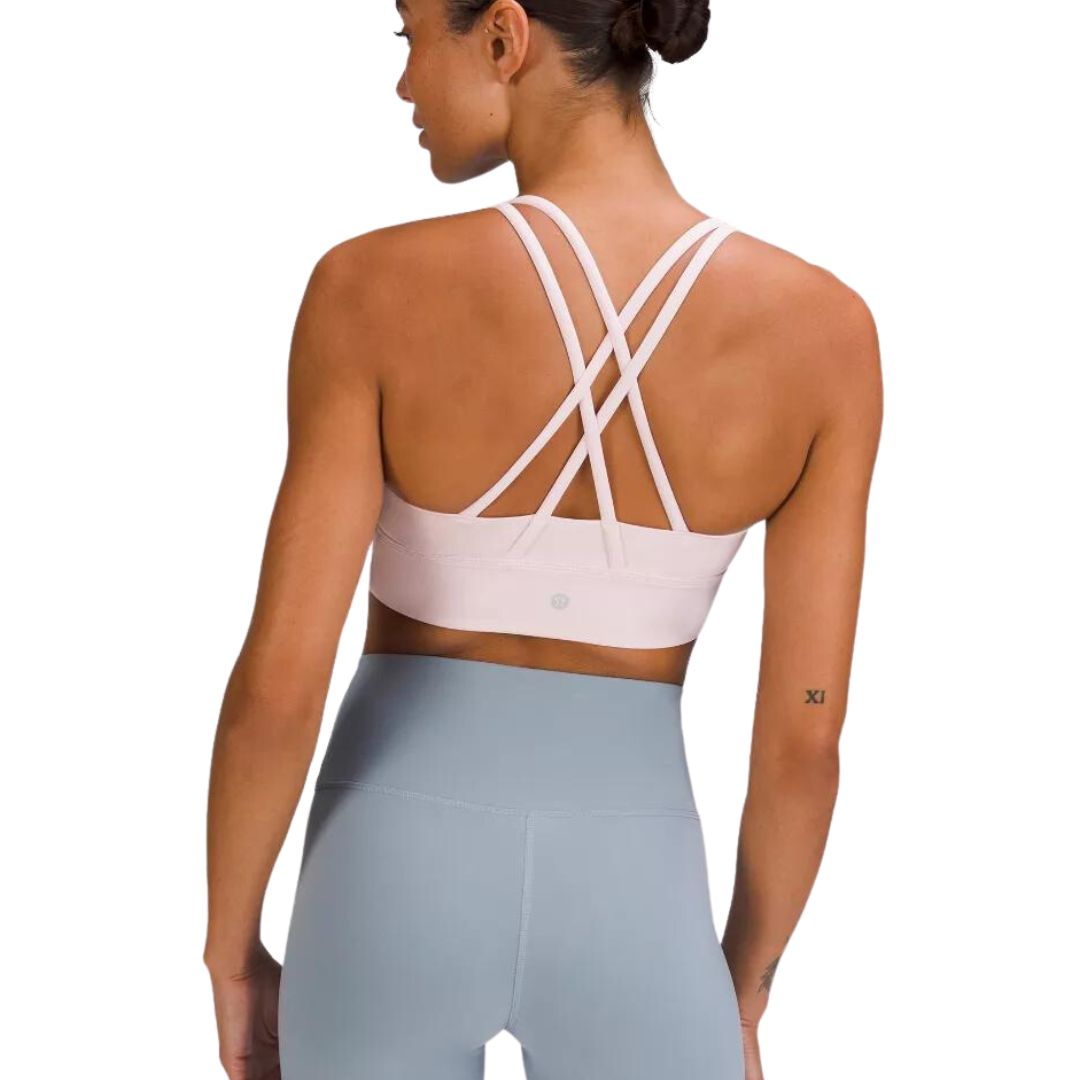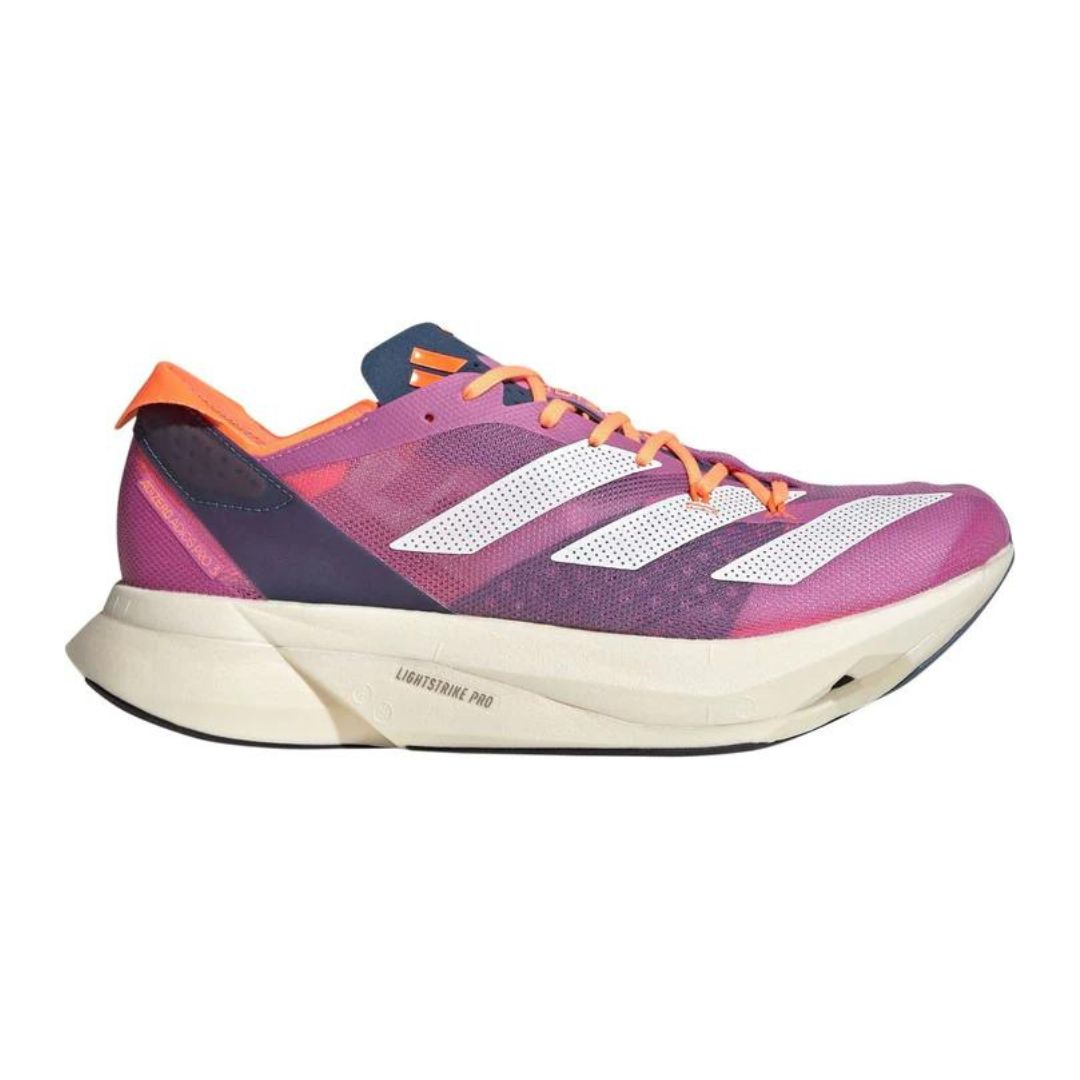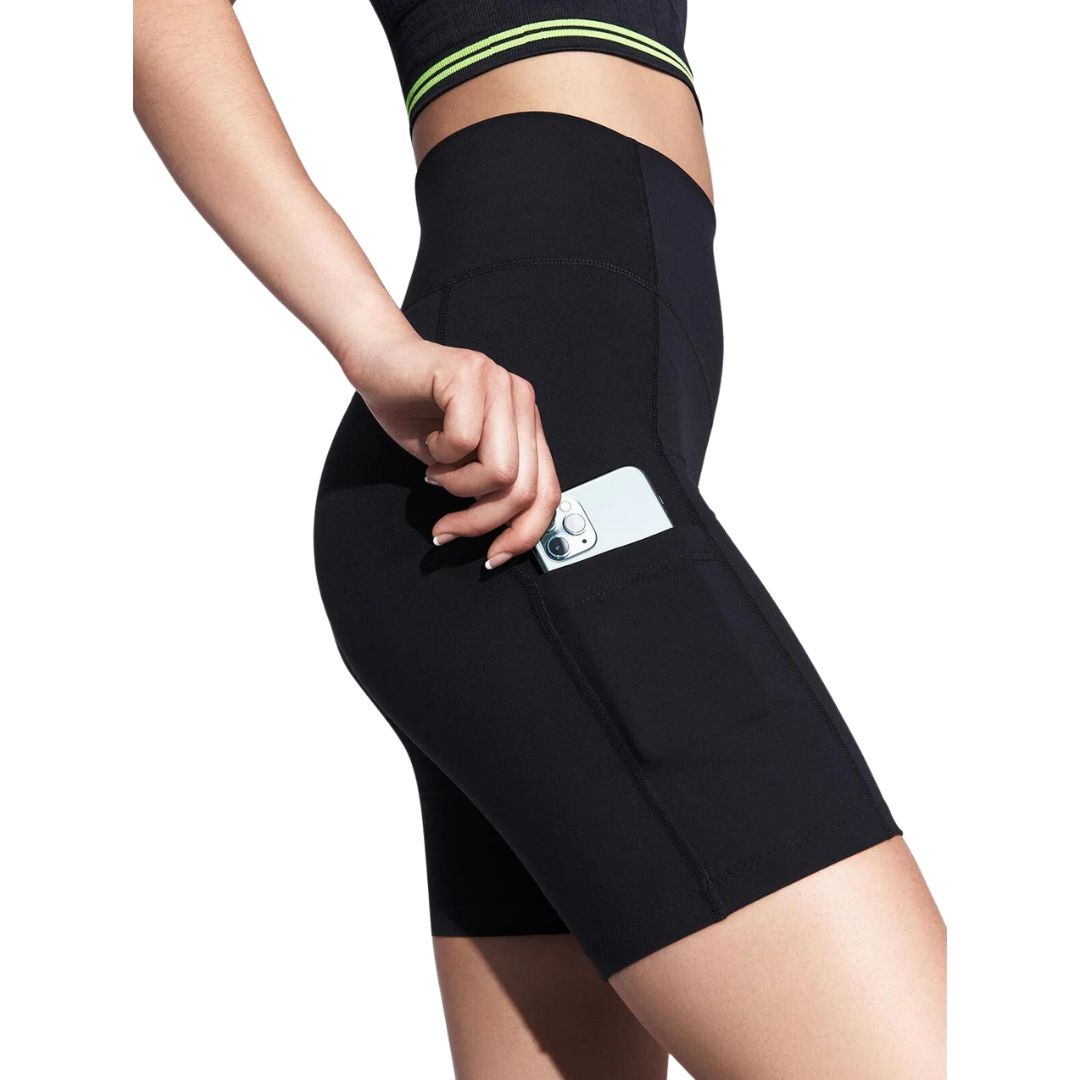I'm a 9x marathoner who still found race day daunting - but these handy tweaks completely changed the game
Considering training for a 26.2?

As the Health Editor here at Marie Claire UK, it’s fair to say I’ve tried a few fitness trends in my time. From Barre, to acupuncture, to running a marathon, I’m always the first to test wellness trends and report back on whether they’re actually worth your time and energy.
When I was asked to run my first marathon - the London Marathon back in 2017 - I thought it’d be a one-and-done, tick-off-the-bucket-list achievement. Little did I know running would become a soothing constant in my life. Six years later, I’ve completed nine marathons in total which, as well as helping me reap the many physical benefits of running, have boosted my mental wellbeing more than I could have imagined.
Marathons, in particular, have become my favourite race. I’m sure this sounds mad if you’ve never completed one, but hear me out. You see the very best of humanity - people completing a challenge they never thought possible, others lacing up to conquer 4+ hours of running in memory of loved ones, and locals going out of their way to support complete strangers on their way.
So it’s fair to say I’ve learnt a few things over the years about what makes for a successful marathon and a bit of a slog of a 26.2 miles. Often the biggest hitch? The nerves come race day. Abroad races in particular can be really stressful, with 101 moving parts. Even small things like eating your go-to breakfast or working out how to get to the start line can feel daunting in a new place.
That’s why, when my most recent marathon rocked around, I tried a few different things to make sure I kept my stress levels as low as possible before the big day. When I say the whole experience has changed how I view marathons, I’m not lying. I ran my fastest time ever in Berlin - 3 hours 15 minutes, a near five-minute personal best and my third Boston Qualifying time - and believe these tweaks were, by and large, to thank.
Ever wanted to run a marathon abroad or even here in the UK but found the prospect daunting? This article is for you. Keep reading - and do scroll our guides to running tips for beginners, the best UK running races, and fifteen expert training tips for a marathon, while you're here.
Running a marathon can be daunting - here’s what I changed this year to make sure mine wasn't
1. I went with a tour organiser
When I’ve raced abroad before, I’ve always booked my own flights and accommodation, making my own way to the expo (where you pick up your bib for the race) and heading to the start line solo.
Marie Claire Newsletter
Celebrity news, beauty, fashion advice, and fascinating features, delivered straight to your inbox!
Not this year, however, as I headed along with Sports Tours International, a sports tour operator that promises to make venturing far afield (or even close to home) for an event totally hassle-free. They’ve been around for half a century, taking both runners and cyclists to some of the world’s biggest mass-participation events. Offering packages all over the world, you can race in Japan, Cyprus, France, Germany, South Africa, Greece, the USA, and more, with guaranteed race entry at the click of a button.
What’s so special about booking with a company like Sports Tours, then? In short, they take care of everything for you - all of the arguably tedious race-day admin that takes up precious time when you could otherwise have been training or recovering. From booking flights, to organising your hotel, to securing your race place, you name it, they sort it.
A couple of weeks prior, they send you a handy document detailing everything you need to know, from your hotel address to what times the group will be leaving to head to the expo each morning. Not just that, but specific information on what visas you’ll need, the currency in the country you’re travelling to and which travel insurance options to opt for, if you choose.
I didn’t know what to expect prior to the marathon weekend but was blown away by how seamless the organisation was. Our hotel was five-star with a spa, pool and sauna downstairs (trust me - my post-marathon legs have never been happier), not to mention ideally located in central Berlin. This made my journey to the start line on race day an easy 20-minute affair - far quicker than the 45 minutes it took me to get to the Chicago Marathon start line last year.
Not only that, but I loved getting to meet like-minded runners at the pre-race briefing. By and large, they all booked with Sports Tours for a similar reason: because as busy working individuals, they wanted to take part in the marathon without all the admin and logistics that come with it.
What it meant, in reality, was far more headspace to focus on the things I needed to sort for race day - getting my kit laid out, eating enough carbs, and perfecting my playlist for when things got tough.
As the official tour sponsor of the Berlin Marathon, they helped over 1000 runners complete their dream of completing the World Major event this year, a number which looks set to get even bigger next year.
A post shared by ALLY HEAD (@allyyhead)
A photo posted by on
2. I focused on the controllable
This one was a big one, and something psychologist Jim Taylor Ph.D. speaks about in Psychology Today.
By focusing on controlling the controllable, you make peace with the fact there will be other elements - think the weather or the race starting a few moments late - that you won't be able to control. How does this look on race day? Head coach and founder of run coach company PASSA Lillie Bleasdale advises: "Follow your training plan to a tee, book your meal for the evening before if you’re staying in a hotel, and do a test run of getting to the start line."
Bottom line: there are lots of things that you can do to make sure you’re ready to roll, but there are also things you won't be able to control. If you've done all you can to be organised, these won't feel as daunting, because, as she puts it, "you’ve done the hard work to put yourself in the best position regardless."
3. I ate enough carbs
"Carb loading" is a phrase thrown around regularly in the world of running, but you'd be hard-pressed to find a runner who genuinely understands how many grams of carbohydrates they need to consume per kilogram of body weight prior to a big race (myself included).
This time, I picked the brains of sports nutritionist Jonny Stephens prior to the race to make sure I knew exactly what my body would need in terms of fuelling. Unlike previous years where I've just eaten a bowl of pasta and hoped for the best, this time I really honed in on my nutrition, practising the exact meals and snacks before my long training runs, too.
So, what exactly does that look like? "The goal of a carb load is saturating your muscles with glycogen, which they can in turn use as fuel to perform," he explains. "The current scientific research suggests that the day before a marathon, we should be aiming to consume 100g of carbohydrate per kg of body weight. So the average UK woman, who weighs 72kg, would be aiming to consume 720g of carbohydrates over the day the day before."
Stephens reassures that this might feel like a lot and should be practised in training. "There is some research to suggest that this could be split over a couple of days - for example, a two-day carb load may be a bit more comfortable for some people."
Do note, as well: research suggests that this kind of fuelling strategy is effective for those completing long-distance, endurance exercises of a length longer than 90 minutes.
One of my biggest learnings from this training cycle was that your body can't perform unless it's adequately fuelled - simple science, really. For me, this looked like:
- The day before: 2x bagels, peanut butter and a banana for breakfast
- A cheese sandwich and a banana for lunch
- A pretzel and Harbio gummies to snack on throughout the day
- Tomato pasta, orange juice and a Maurten bar for dinner
- The morning of: A bagel, banana and a coffee
- One Maurten gel 15 minutes prior to starting
- 6 Maurten gels (every 25 to 30 minutes) during the race.
How much carb you need to take on will vary hugely from person to person, so do book an appointment with a sports nutritionist if you're not sure what that looks like for you.
A post shared by ALLY HEAD (@allyyhead)
A photo posted by on
4. I tested my kit during training
You'll all have heard this absolutely classic race advice, but question for you: can you genuinely say, hand on heart, that you've completed at least one long run in the exact kit you're planning on wearing come race day?
I can't say I had - while I'd always worn iterations of the kit I planned to run in, it was often a mix-and-match affair. My shorts would end up being in the wash, or I wouldn't be able to find my running bag in time before I headed out.
This training cycle, that changed. I did two of my longest runs in the exact kit I planned to wear on race day - bra, shorts, top, running belt, socks, trainers, and even headphones and watch. I also wore the exact same outfit for the Paris Half in March, which I'd run at faster than race pace. The logic behind testing your kit again and again over distance is simple: you leave no room for error (read: blisters, chafing, or generally irritating wardrobe malfunctions holding you back when you need to be focused on running the thing).
Bleasdale confirms it's a key element of race day success, adding: "Never underestimate how important it is to be comfortable on race day. The last thing you want is to be pulling up your shorts, tightening your sports bra, or stopping to re-lace your shoes."
Practising what I'd be wearing ahead of time took a massive weight off and meant that I knew I'd have no issues with my kit. One less thing to think about? Check.
Shop Ally's go-to running kit now:

This Energy bra is a firm favourite in my workout wardrobe rotation - so much so, I wore one for the marathon. The bra is flattering yet functional, offering support for intense weights sessions and cardio alike.
5. I started my prep months, not weeks, before
Naturally, you're physically training for four, sometimes five months prior to the big day, but what I'm talking about here is mental training. This marathon training cycle, I kept a running journal so that, come race weekend, I could reflect back on all the hard hours of working out and trust in my training, as my coach always encourages me.
I found this a really powerful tool for reminding myself how far I'd come and how much work I'd done to get both my mind and body to this point.
Bleasdale agrees that journalling can be a simple yet effective way of mentally preparing yourself, adding: "Getting yourself for race day is both a physical and mental undertaking," she explains. "I tell my clients that it's key to envision the day in the lead-up, mentally preparing a Goal A, B and C so that they'll still be able to reflect on the amazing training they did if they don't quite hit their ideal time."
It goes without saying that physically preparing for race day is important, but when the going gets tough, it’s your mental power which will allow you to keep going.
How many miles should you run a week for a marathon?
This will totally depend on your current fitness level and lifestyle. The best place to start if you've signed up for a marathon is a site like Runner's World, where they have running plans available for every type of runner, or alternatively download one of the best running apps.
If you're after a more tailored approach, a running coach will only ever be a great investment in both your body and fitness.

Ally Head is Marie Claire UK's Senior Health and Sustainability Editor, nine-time marathoner, and Boston Qualifying runner. Day-to-day, she heads up all strategy for her pillars, working across commissioning, features, and e-commerce, reporting on the latest health updates, writing the must-read wellness content, and rounding up the genuinely sustainable and squat-proof gym leggings worth *adding to basket*. She also spearheads the brand's annual Women in Sport covers, interviewing and shooting the likes of Mary Earps, Millie Bright, Daryll Neita, and Lavaia Nielsen. She's won a BSME for her sustainability work, regularly hosts panels and presents for events like the Sustainability Awards, and is a stickler for a strong stat, too, seeing over nine million total impressions on the January 2023 Wellness Issue she oversaw. Follow Ally on Instagram for more or get in touch.
-
 Anya Hindmarch has just launched a fantastical diving shop in central London
Anya Hindmarch has just launched a fantastical diving shop in central LondonFor those who would rather be beside the seaside...
By Sofia Piza
-
 Blake Lively’s legal team has criticised Justin Baldoni’s “scorched earth" approach
Blake Lively’s legal team has criticised Justin Baldoni’s “scorched earth" approachBy Jenny Proudfoot
-
 Aimee Lou Wood has called out Saturday Night Live for its “mean” joke about her appearance
Aimee Lou Wood has called out Saturday Night Live for its “mean” joke about her appearanceBy Jenny Proudfoot

